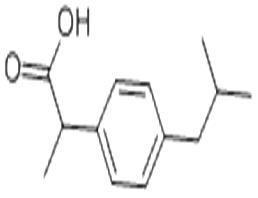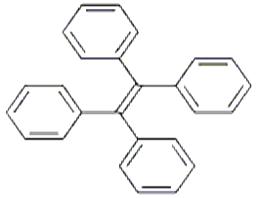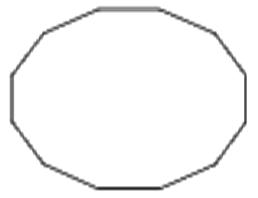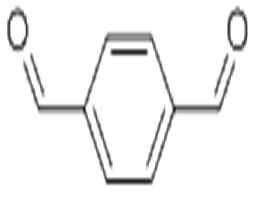
Ibuprofen
| Price | $1 |
| Package | 1KG |
| Min. Order: | 1G |
| Supply Ability: | 100KG |
| Update Time: | 2019-07-06 |
Product Details
| Product Name: Ibuprofen | CAS No.: 15687-27-1 |
| Min. Order: 1G | Purity: 98% |
| Supply Ability: 100KG | Release date: 2019/07/06 |
AD68
| Ibuprofen Basic information |
| description Indications Used in Particular Diseases Increase stroke risk Precautions Drug Interactions Side Effects |
| Product Name: | Ibuprofen |
| Synonyms: | RARECHEM AL BO 0989;MOTRIN(TM);(+/-)-2-(4-ISOBUTYLPHENYL)-PROPIONIC ACID;2-(4-ISOBUTYLPHENYL)PROPIONIC ACID;4-ISOBUTYL-ALPHA-METHYLPHENYLACETIC ACID;AKOS NCG1-0060;(+/-)-ALPHA-METHYL-4-(2-METHYLPROPYL)-BENZENEACETIC ACID;ALPHA-METHYL-4-[2-METHYLPROPYL]BENZENEACETIC ACID |
| CAS: | 15687-27-1 |
| MF: | C13H18O2 |
| MW: | 206.28 |
| EINECS: | 239-784-6 |
| Product Categories: | Active Pharmaceutical Ingredients;API;APIs;Inhibitors;Intermediates & Fine Chemicals;Pharmaceuticals;API's;Lipid signaling;Isotopically Labeled Pharmaceutical Reference Standard;ADVIL;Other APIs;Pharmaceutical ingredients;pharmacetucial intermediate |
| Mol File: | 15687-27-1.mol |
 |
|
| Ibuprofen Chemical Properties |
| Melting point | 77-78 °C(lit.) |
| Boiling point | 157 °C (4 mmHg) |
| density | 1.0364 (rough estimate) |
| refractive index | 1.5500 (estimate) |
| Fp | 9℃ |
| storage temp. | -20?C Freezer |
| form | Crystalline Powder |
| color | white to off-white |
| Water Solubility | insoluble |
| Merck | 14,4881 |
| Stability: | Stable. Combustible. Incompatible with strong oxidizing agents. |
| InChIKey | HEFNNWSXXWATRW-UHFFFAOYSA-N |
| CAS DataBase Reference | 15687-27-1(CAS DataBase Reference) |
| NIST Chemistry Reference | Ibuprofen(15687-27-1) |
| EPA Substance Registry System | Benzeneacetic acid, .alpha.-methyl-4-(2-methylpropyl)- (15687-27-1) |
| Safety Information |
| Hazard Codes | Xn,N,T,F |
| Risk Statements | 22-63-51/53-39/23/24/25-23/24/25-11 |
| Safety Statements | 36-61-36/37-45-16-7 |
| RIDADR | 2811 |
| WGK Germany | 3 |
| RTECS | MU6640000 |
| TSCA | Yes |
| HazardClass | 6.1(b) |
| PackingGroup | III |
| Hazardous Substances Data | 15687-27-1(Hazardous Substances Data) |
| Toxicity | LD50 in male mice, rats (mg/kg): 495, 626 i.p.; 1255, 1050 orally (Orzalesi) |
| Ibuprofen Usage And Synthesis |
| description | Ibuprofen belongs to a non-steroidal anti-inflammatory analgesic. It has excellent anti-inflammatory, analgesic and antipyretic effect with less adverse reactions. It has been widely used in the world, as the world's best-selling non-prescription drugs. It, together with aspirin and paracetamol are listed as the three key antipyretic analgesics products. In our country, it is mainly used in pain alleviation and anti-rheumatism, etc. It has much less applications in the treatment of cold and fever compared with paracetamol and aspirin. There are a dozens of pharmaceutical companies qualified for production of ibuprofen in China. But the bulk of the domestic market sales of ibuprofen have been occupied by Tianjin Sino-US Company. The Ibuprofen was co-discovered by Dr. Stewart Adams (later he becomes a professor and won the Medal of the British Empire) and his team including CoLinBurrows and Dr. John Nicholson. The aim of the initial study was to develop a "super aspirin" to obtain an alternative for the treatment of rheumatoid arthritis that is comparable to that of aspirin but with less serious adverse reactions. For other drugs such as phenylbutazone, it has a high risk of causing adrenal suppression and other adverse events such as gastrointestinal ulcers. Adams decided to look for a drug with good gastrointestinal resistance, which is particularly important for all non-steroidal anti-inflammatory drugs. Phenyl acetate drugs have aroused people's interest. Although some of these drugs have been found to be at risk of causing ulcers based on the dog's test, Adams is aware of that this phenomenon may be due to a relatively long half-life of the drug clearance. In this class of drugs there is a compound – ibuprofen, which has a relatively short half-life, sustaining only 2 hours. Among the screened alternative drugs, although it is not the most effective, it is the most secure. In 1964, ibuprofen had become the most promising alternative to aspirin. |
| Indications |
|
| Used in Particular Diseases | Acute Gouty Arthritis: Dosage and Frequency: 800 mg four times a day |
| Increase stroke risk | Ibuprofen is one of the most commonly used non-prescription painkillers, commonly used in the treatment of arthritis, muscle pain, neuralgia, headache, migraine, toothache, dysmenorrhea or low back pain. A recent study published in the British Medical Journal found that people who have taken a large number of antipyretic drugs, ibuprofen, have a 3-fold increase in the risk of getting stroke or heart disease. Researchers from the University of Berne in Switzerland reviewed 31 clinical trials involving more than 11.6 million patients. Patients were treated with one of seven common analgesics. The results showed that patients subjecting to long-term administration of large doses of ibuprofen not only have a risk of getting stroke increased by 3 times, but also have significantly increased risk of suffering heart attack and heart disease death. However, the study also showed that occasionally taking ibuprofen for the treatment of headache will not be dangerous. The study also found that commonly used analgesic diclofenac sodium also has a similar problem. The study found a health risk associated with long-term use of ibuprofen, being similar to the anti-arthritis drug rofecoxib (Velcro), which was halted in 2004 due to safety concerns. |
| Precautions | 1.For late pregnancy women, it can prolong the pregnancy, causing dystocia and prolonged pregnancy course. Pregnant women and lactating women should not administrate it. 2. Inhibition of platelet aggregation; it can extent the bleeding time. This effect will disappear at 24 hours after withdrawal of the drug. 3. It can increase the blood urea nitrogen and serum creatinine content, further reducing the creatinine clearance rate. The following circumstances should be used with caution:
|
| Drug Interactions |
|
| Side Effects |
|
| Chemical Properties | Colourless, Crystalline Solid |
| Uses | A selective cyclooxygenase inhibitor (IC50=14.9uM). Inhibits PGH synthase-1 and PGH synthase-2 with comparable potency |
| Uses | antiinflammatory |
| Uses | Antibiotic |
| Definition | ChEBI: A monocarboxylic acid that is propionic acid in which one of the hydrogens at position 2 is substituted by a 4-(2-methylpropyl)phenyl group. |
Company Profile Introduction
Established in 2014,Career Henan Chemical Co. is a manufacturerspecializing in the sale of fine chemicals.
Mainly deals in the sales of:
Pharmaceutical intermediates
OLED intermediates:
Pharmaceutical intermediates;
OLED intermediates;
You may like
Recommended supplier
| Product name | Price | Suppliers | Update time | |
|---|---|---|---|---|
| $150.00/1kg |
VIP1Y
|
Hebei Zhuanglai Chemical Trading Co Ltd
|
2024-12-03 | |
| $45.00/500mg |
VIP5Y
|
TargetMol Chemicals Inc.
|
2024-11-19 | |
| $45.00/500mg |
VIP3Y
|
TargetMol Chemicals Inc.
|
2024-11-19 | |
| $100.00/25kg |
VIP6Y
|
Hebei Weibang Biotechnology Co., Ltd
|
2024-10-28 | |
| $0.00/1g |
VIP1Y
|
BEIJING SJAR TECHNOLOGY DEVELOPMENT CO., LTD.
|
2024-10-12 | |
| $30.00/1kg |
VIP4Y
|
Hebei Chuanghai Biotechnology Co,.LTD
|
2024-08-27 | |
| $0.00/1KG |
VIP5Y
|
Hebei Yanxi Chemical Co., Ltd.
|
2024-08-06 | |
| $10.00/1kg |
VIP1Y
|
Hebei Ganmiao New material Technology Co., LTD
|
2024-06-07 | |
| $15.00/1kg |
Ouhuang Engineering Materials (Hubei) Co., Ltd
|
2024-04-28 | ||
| $0.00/1kg |
VIP1Y
|
Henan Suikang Pharmaceutical Co.,Ltd.
|
2024-04-26 |
- Since: 2014-12-17
- Address: No.967,15th Floor,Unit 7, Building 1, No.70 of DianChang Road, High-tech Development Zone, Zhengzho
INQUIRY
楊俊青
sales@coreychem.com
sales@coreychem.com








 China
China